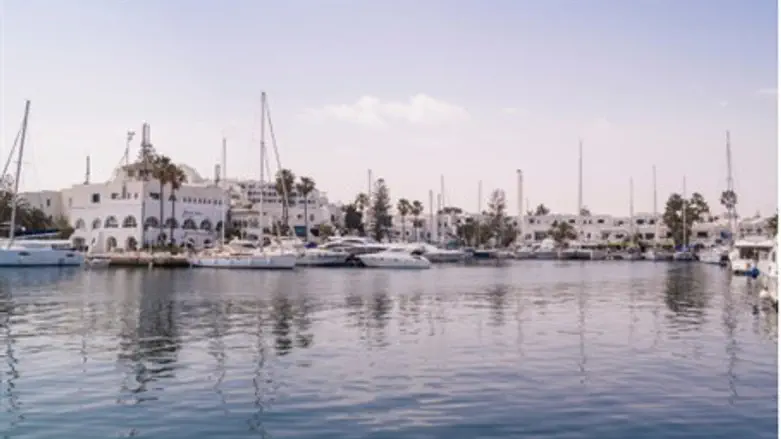
Tunisia's tourism minister denied on Friday that Israeli tourists aboard a cruise ship who were prevented from entering the country had been discriminated against, saying there had been a procedural problem, according to an AFP report.
The Miami-based Norwegian Cruise Line (NCL) said on Monday a "small number" of Israeli passengers on one of its ships were not allowed to disembark in Tunis "because of a last-minute decision made by the Tunisian government."
The next day, NCL announced that it would no longer call at Tunisian ports, saying that "in response to this discriminatory act...it has cancelled all remaining calls to Tunisia and will not return."
Tourism Minister Amel Karboul told journalists, however, that "as in all the countries in the world, for certain nationalities, there are obligatory visas or passes."
“It is not linked to one nationality,” she stressed, adding that Israelis are usually required to apply for a pass to enter Tunisia because of the absence of diplomatic ties between the countries.
"This time, the procedures were not followed in the necessary timeframe. They do not have the possibility to buy the visa" on arrival, Karboul said, according to AFP.
In January, Karboul faced criticism from parliamentarians over a trip to Israel she took in 2006 to take part in a UN training program for Palestinian Arab youths.
Karboul subsequently resigned from her post but Prime Minister Mehdi Jomaa refused to accept her resignation.
Tunisia's key tourism sector has been in crisis since the uprising that ousted former leader Zine El Abidine Ben Ali in 2011.
Tunisia relies on tourism for almost seven percent of its gross domestic product and has seen a significant drop in tourists since the revolution which started the Arab Spring protests.
The issue of relations with Israel is a taboo subject in Tunisia, as it is in other Arab countries. Tunisia hosted the Palestine Liberation Organization (PLO) after its 1982 expulsion from Lebanon and until after the signing of the Oslo Accords.
In 1996, Tunisia and Israel opened interest sections in each other's country, but Tunis froze relations in 2000 in protest at Israel's response to the Second Intifada, also known as the Oslo War.
The Islamist Ennahada party, which won the country's first free and competitive elections after Ben Ali’s ouster, rejected outright any normalization of diplomatic ties with Israel. Ennahada was since replaced with a new government of independent figures headed by Jomaa, Tunisia’s former Industry Minister.
(Arutz Sheva’s North American Desk is keeping you updated until the start of Shabbat in New York. The time posted automatically on all Arutz Sheva articles, however, is Israeli time.)